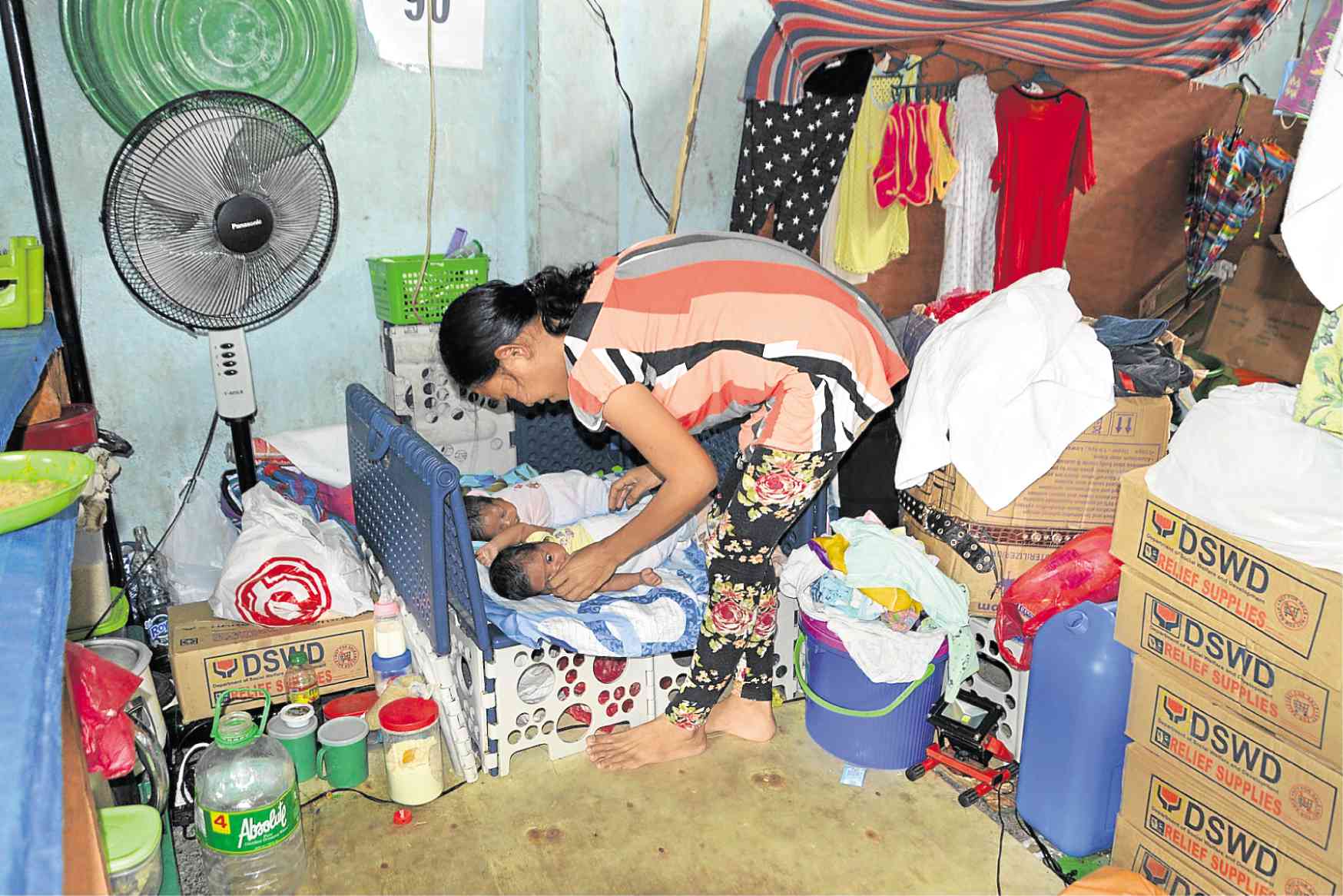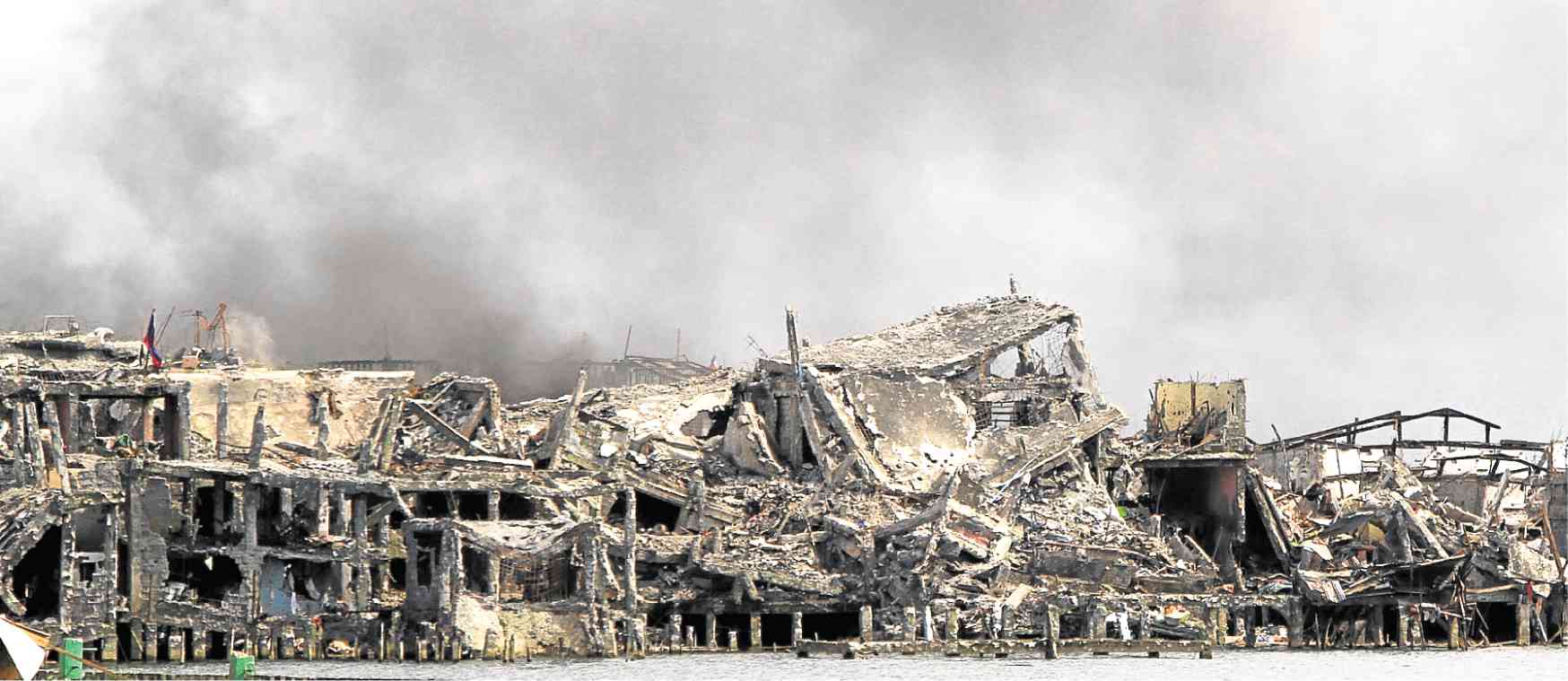Amid Marawi deaths, new life emerges

A woman evacuee checks her twins at an evacuation center in Iligan City for residents of Marawi City, which had now been reduced to rubble (top photo). —DIVINA M. SUSON AND RICHEL V. UMEL
SAGUIARAN, Lanao del Sur — New life emerged from Marawi City amid the deaths of dozens of residents during the war to prevent Islamic State (IS) terrorists from setting up an IS province.
At least 100 women, who fled the Marawi war, had given birth amid the most difficult of birthing places — evacuation centers.
One of them was Widad Batabor, 28. Pregnant for seven months, she fled Marawi the day she celebrated her birthday on May 23, when President Rodrigo Duterte declared martial law and war broke out.
She was bleeding profusely as a result of complications in her pregnancy.
“I wanted to save my baby before the bombings got worse,” she said, carrying her now 4-month-old baby in her arms.
Article continues after this advertisementIt took Batabor 10 hours to reach this town, at least six kilometers away from Marawi.
Article continues after this advertisement“It felt like 10 years for me,” she said.
‘Baby Bakwit’
Barely a month after arriving here, Batabor gave birth via caesarean operation to a baby boy she nicknamed “Baby Bakwit.” It was a premature birth that Batabor blamed on harsh conditions as an evacuee.
Her hospital bills ran up to P90,000, virtually all that she had saved.
Batabor was among dozens of women from Marawi who gave birth during the war. She took shelter in a relative’s house like about 80 percent of residents who fled did.
In this town, some 32 km from Iligan City, at least 108 women evacuees had given birth from May 23 to June 30.
All had given birth through normal procedures but poor sanitation in evacuation sites endangered their and their babies’ lives.
The regional health unit in this town served as temporary hospital for at least 5,714 families. It recorded an average of four babies born daily from May 24 to June 30. From July to September, 235 women had prenatal checkup.
Women with newborn babies continued to recover in tents or spaces on covered courts and plazas. They laid on straw mats or cartons on dusty floors.
No protection
Plastic sheets placed above their sleeping areas barely protected them from the rain.
Daily diet consisted of canned food and rice. At least 213 lactating mothers stopped producing milk.
“It’s just psychological,” said Rocaira Butawan, midwife of Saguiaran health unit.
Butawan said that while the new mothers had been advised to get monthly checkups, only 60 percent returned.
The town’s health unit listed 180 malnourished children from May 24 to June 30. The health center distributed Vitamin A, multivitamins, ferrous sulfate and powdered food.
During the same period, 627 children less than 5 years old suffered from upper respiratory tract infection. —CONTRIBUTED
